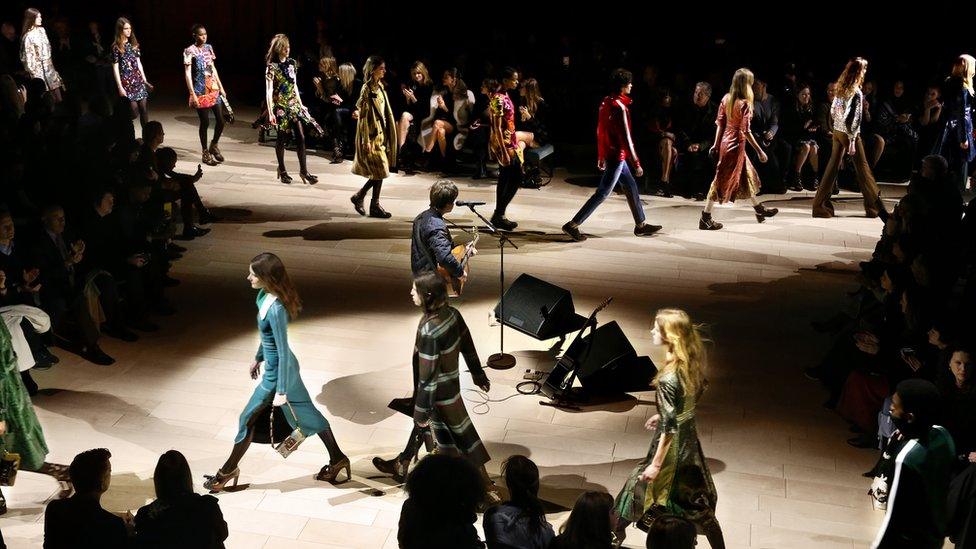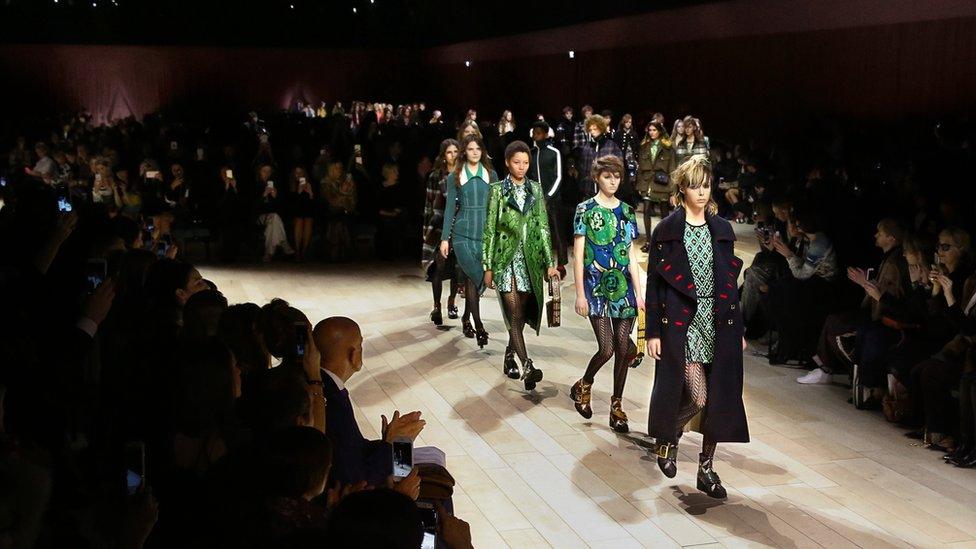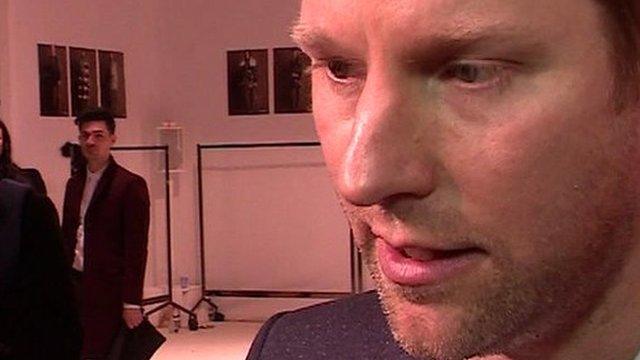Burberry to launch instant catwalk sales
- Published
Burberry boss on tech and fashion
The luxury goods firm, Burberry, is changing the way it presents and sells its collections.
Everything seen at its catwalk shows from September will be available to buy immediately in stores and online.
Previously customers had to wait up to six months to buy items from those collections.
The changes are in response to shoppers unwillingness to wait so long to buy items they have seen at its fashion shows.
Like other fashion houses Burberry is seeing changes in the way consumers spend their money.
Buy now, wear now
The collections used to be divided up into Spring/Summer and Autumn/Winter but now they will be known as February and September shows.
The schedule was such that summer clothes were shown in the winter months and vice versa. The timetable was arranged to fit in with fashion magazine deadlines and production schedules, but the arrival of the internet has disrupted that.
Now customers want to buy things instantly.
The annual four shows - two for women and two for men - are to be combined into just two.
Last year the company said it was merging its three fashions lines - Burberry Prorsum, London and Brit - and they would all be bought under one label, Burberry.
Closing the gap

Jake Bugg performing at the Burberry catwalk 2016 show
Burberry clearly are hoping to boost sales, and profits, from making its clothes available straight away. Cutting back on two shows will also save substantial amounts of money.
Chief Executive Christopher Bailey said making the clothes available straight away was what the customers were asking for.
"In the past the shows were for mainly for the industry, buyers and fashion journalists. They were the only people who saw and decided what was important. And you had to wait four or five 5 months to see the clothes in the magazines. That has all changed."
"The shows are now available to our audiences at the same time as industry insiders. And technology is enabling us to give them what they want."
He said the way things were done in fashion had to change, otherwise it would end up like the music industry, that is stuck with CDs while everyone was busy downloading music on their smartphones.
Avril Groom, a freelance fashion writer, warns that it will be a difficult job juggling demand and supply instantly.
"It will depend on how much stock they hold to go with the shows. If they have too much, and it doesn't sell, it will eat into their profits. But if there is not enough, then there will be disappointed customers who don't get what they have been promised."
'Game changer'

But Imran Amed, the founder and chief executive of the blog the Business of Fashion, was confident that Burberry can make it work: "It's a game changer and it's a very bold move that some others will follow."
He said there had been a massive shift in the fashion industry thanks to social media.
The fashion houses faced considerable uncertainly in the next 18 to 24 months, Mr Amed added, and not everyone would be able to afford to do what Burberry is going to do.
Burberry, which was established in 1856, started out making gabardine coats and outwear. It is hugely popular in Asia and has 65 stores in China. The slowdown in the Chinese economy has had an impact but last November the company reported a 9% increase in pre-tax profits, while saying it faced a "challenging environment".
It was the first company to put its fashion shows live on the internet, so that anyone from Beijing to Brighton could see the collection.
Burberry has also run digital campaigns on Snapchat and Instagram. And since 2009 it has been possible to pre-order the clothes from the shows online - the only major British label to do so.
- Published22 February 2016

- Published5 February 2016
